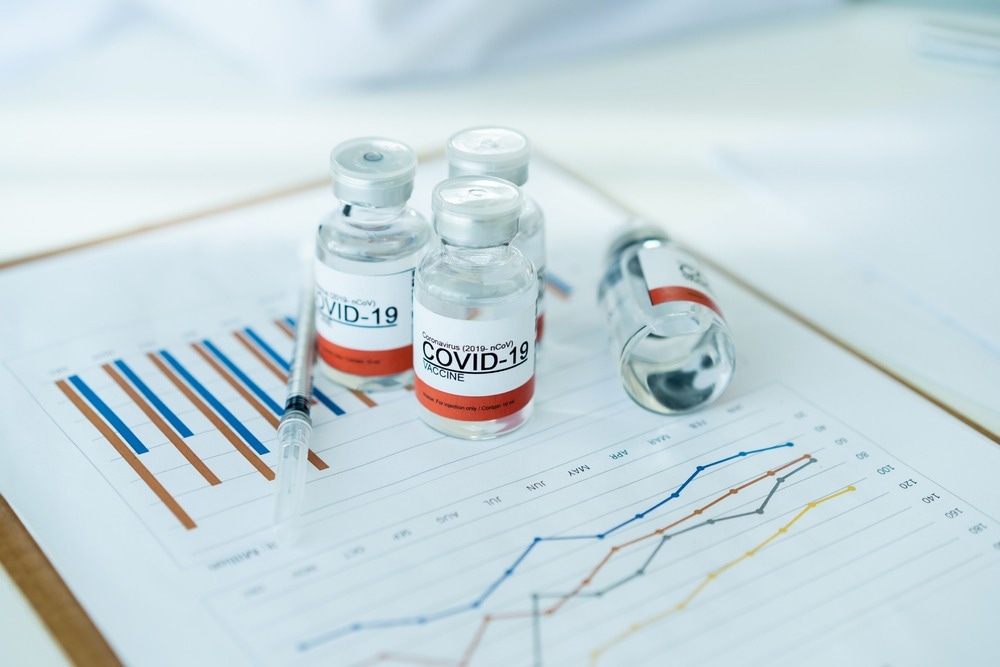Even as the coronavirus disease 2019 (COVID-19) pandemic remains a threat to public health, researchers continue to detect new variants of the causative virus, the severe acute respiratory syndrome coronavirus 2 (SARS-CoV-2).
The SARS-CoV-2 Omicron variant continues to spread rapidly and evades immunity, even in those vaccinated against the virus. A new study published in The Lancet Microbe examines the immune evasion characteristics of the Omicron XBB subvariant.

Study: Omicron sublineage recombinant XBB evades neutralising antibodies in recipients of BNT162b2 or CoronaVac vaccines. Image Credit: DG FotoStock / Shutterstock.com
Introduction
In an effort to reduce the rate of SARS-CoV-2 transmission and prevent healthcare systems from being overwhelmed, public health authorities in most countries around the world shut down social, educational, and commercial activities.
This inevitably had considerable economic and political costs, while its effects on healthcare systems varied from place to place. To mitigate the morbidity and mortality associated with COVID-19, scientists quickly began developing, testing, and releasing effective vaccines.
The Pfizer-BioNTech and Moderna COVID-19 vaccines were developed on a messenger ribonucleic acid (mRNA) platform, with the virus immunodominant spike antigen expressed by the injected mRNA in the host’s body, thus inducing immunity. Shortly after the development of these vaccines, several more followed, many of which were built on a viral vector platform that utilized innocuous viruses like the adenovirus to introduce the SARS-CoV-2 spike protein into the vaccine recipient.
Despite international vaccination campaigns that aimed to immunize the global community, the most effective vaccines were initially provided to high-income countries, whereas many developing countries were allotted smaller shares.
As 2021 progressed, SARS-CoV-2 variants began to emerge, sometimes simultaneously or in close succession, in different parts of the world. Many of these variants spread faster or more extensively than the ancestral strain and could evade immunity induced by prior infection or vaccination. Such variants are termed variants of concern (VOCs) by the World Health Organization (WHO) and include the Alpha, Beta, Gamma, Delta, and Omicron variants.
The SARS-CoV-2 Omicron variant comprises the most significant number of mutations in any strain to date. In addition, it is associated with a significantly increased ability to evade both natural and vaccine-induced immunity. As a result, Omicron transmission has been responsible for several successive COVID-19 waves in many parts of the world, despite high vaccine coverage.
The current study discusses the importance of the XBB sublineage of Omicron, which is currently the dominant circulating strain in Singapore. However, XBB has also been detected in 35 other countries and is considered a variant under monitoring by the WHO.
Some research suggests that this subvariant may more likely cause reinfection than the original Omicron variant. This is likely due to its ability to evade prior immunity to SARS-CoV-2 induced by either the mRNA or adenovirus vector vaccines.
What did the study show?
The scientists used the widely detected Omicron BA5.2 strain as a control and compared it with both XBB.1 and XBB.3 variants by live virus neutralization test. The two XBB variants differ by a single mutation in the spike gene protein, where valine is substituted for glycine at position 252 (Gly252Val).
Serum samples from 30 recipients of the Pfizer mRNA or CoronaVac vaccines who had received two to four vaccine doses were used for the analysis. Of these 30 individuals, 25% had received two vaccine doses and were previously infected with BA.2.
Another 25% of the study cohort had received three doses and were previously infected with BA.2. About 30% of the study participants were infection-naïve and had received three vaccine doses, while the remaining participants had no infection history and had received four doses.
Antibody titers, which were measured as the geometric mean titer (GMT) of half-maximal neutralizing titer (NT50) (NT50GMT), were lower for both XBB strains. More specifically, NT50GMT values were 19 and 26 for XBB.1 and XBB.3, respectively, whereas the ancestral strain was associated with an exponentially higher titer of 436. Thus, the ancestral strain was associated with about 17- and 23-fold higher neutralizing titers than the XBB strains.
Neutralizing titers were comparably higher at three- and 4.5-fold against the ancestral strain than the BA.5.2 Omicron strain. There was a uniform reduction in the GMT against XBB strains in all vaccine recipient groups and those with a history of prior infection compared to titers against the ancestral strains.
In one patient with a prior BA.5.2 infection, the GMT was higher against the ancestral and BA.5.2 strains by 16-fold in convalescent serum compared to acute-phase serum. Interestingly, there was no rise in anti-XBB neutralizing titer in either type of serum sample.
Another patient with prior XBB.1 infection exhibited an increase in neutralizing titers against the ancestral strain by eight-fold; however, their titers were 20- and 30-fold greater against BA.5.2 and both XBB strains, respectively. Finally, the same trends, albeit much weaker, were observed in a third patient with a previous XBB.3 infection.
What are the implications?
The results of the current study demonstrate that both XBB strains can evade protective immune antibodies much more efficiently than the ancestral or BA.5.2 strains, irrespective of whether the antibodies were elicited by prior infection or vaccination with either the Pfizer or CoronaVac vaccines.
The BA.5.2 lineage does not appear to induce neutralizing antibodies against XBB subvariants. Thus, the risk of reinfection or breakthrough infection is much higher in patients with a history of infection with BA.5.2 or who have received a bivalent vaccine that consists of both the ancestral and Omicron early spike proteins as compared with those infected with the ancestral variant.
Journal reference:
- Zhang, X., Chen, L., Ip, J. D., et al. (2022). Omicron sublineage recombinant XBB evades neutralising antibodies in recipients of BNT162b2 or CoronaVac vaccines. The Lancet Microbe. doi:10.1016/S2666-5247(22)00335-4.